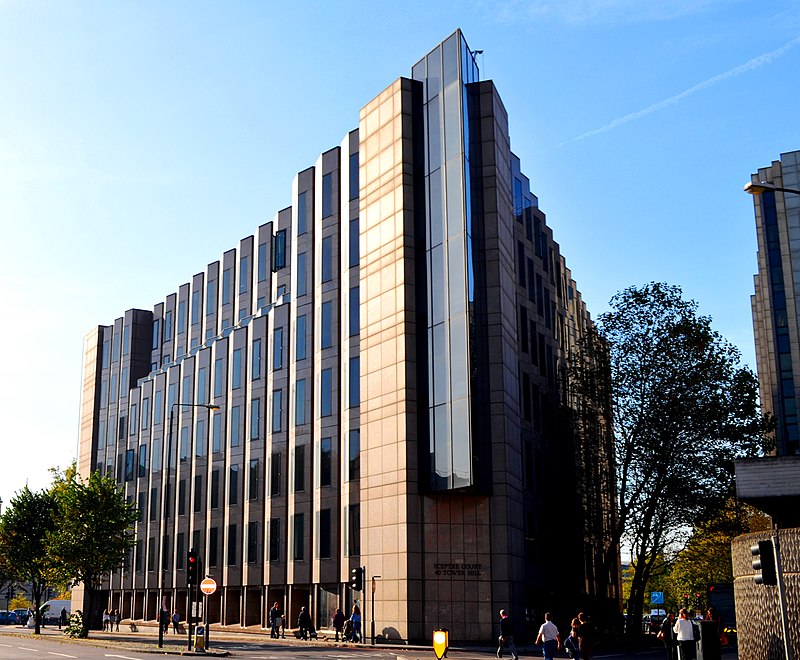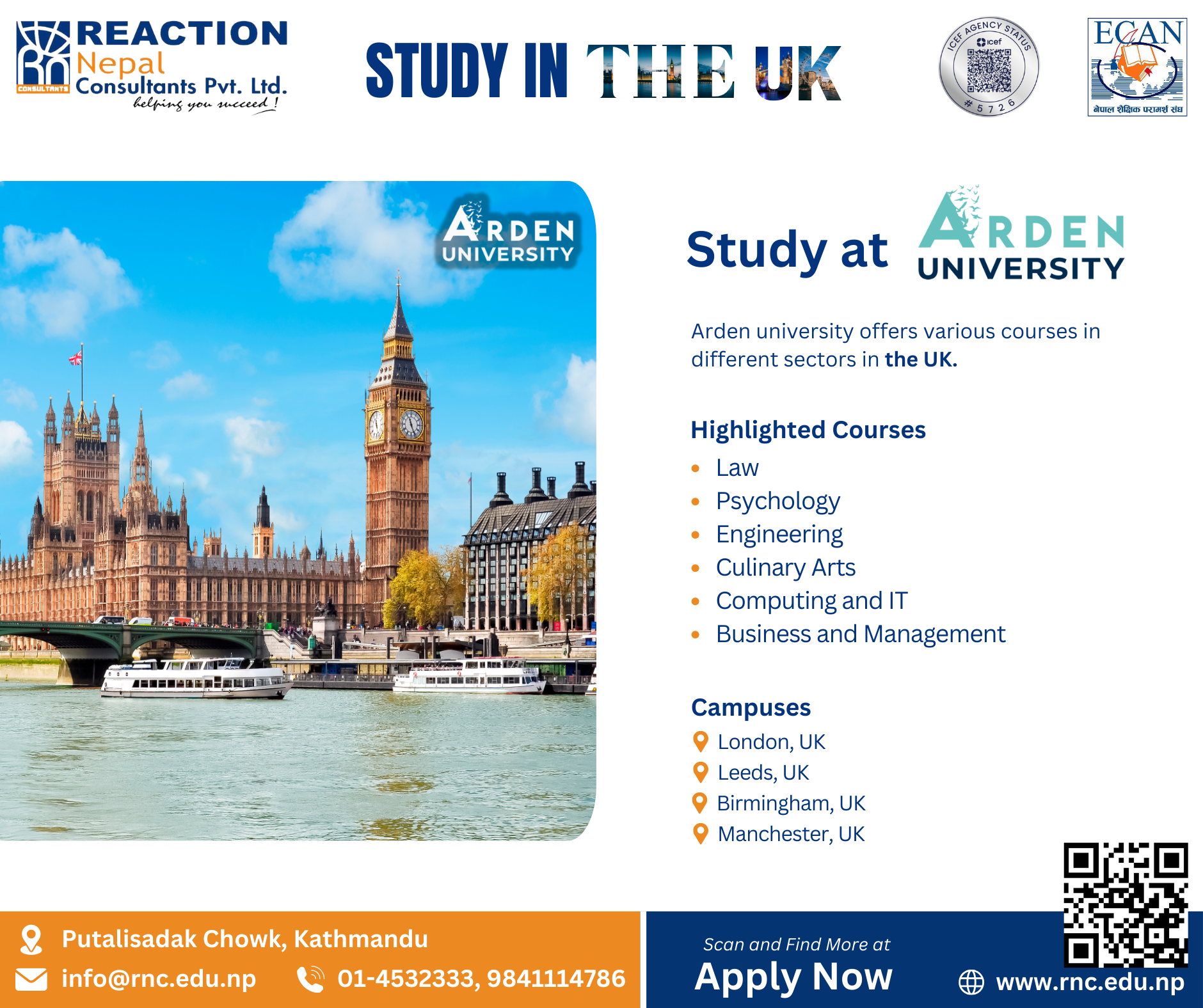

UK universities provide internationally - recognised qualifications of the highest standard. They also offer more opportunities than ever before: there are currently over 50,000 postgraduate taught courses and research opportunities to choose from.Similarly, private and government funded colleges offer affordable vocational courses and academic degrees of accredited awarding bodies and of recognized universities.
The UK higher education system combines the best elements of tradition and modernity. Some UK institutes are among the oldest in the world; others are among the newest. Many provide degrees with a strong vocational foundation and enjoy good links with businesses and professional organisations.
The quality and standard of UK higher education are guaranteed through the work of various official bodies. The quality of a university's teaching and its general facilities are assessed by the Quality Assurance Agency (QAA). Research standards are examined by the Research Assessment Exercise (RAE), which publishes its findings every five years. The results of all these assessments are freely available on the internet. Information on quality assurance and assessments is also available from the Higher Education Funding Councils.
The quality of UK degrees is one reason why so many people come to the UK to study. Another is value for money. Unlike the equivalent programmes in the United States or Australia, most UK Masters programmes can be completed in one year.
A major advantage of studying in the UK is the opportunity to perfect your knowledge of the English language – one of the most important skills in the international business world. If you are from outside the EU, especially if you are studying a commercial subject, you may well appreciate the opportunity to observe at first hand the operation of the European market. The UK is a member of the EU, and living and studying here can provide a useful insight into how this major trading bloc functions.
The degrees and qualifications from UK higher education institutions are known around the world as high quality and world class. The standard of excellence is set by some of the older universities with recognizable names, like Oxford and Cambridge, but the tradition carries through to many of the universities and colleges throughout the UK. When looking for work in the future, this can be a great selling point in your favour!
The cost of education for an international student in the UK can be lower compared to the USA and other countries. Some courses in the USA can be $25,000 plus a year in tuition alone. Tution for the majority of UK higher education institutions is in the region of £3000 to £7,000 a year - considerably less!
You can also save a lot of money because your degree will generally take less time to complete in the UK than in other countries. Although four-year programs are increasing in popularity, most degree programs in the UK require a three-year course and a masters program is typically between one and two years. When you consider the shorter timeframe, the cost will be much lower if you only have to plan for three years instead of four or even five as in many other countries.
An international student in the UK is typically allowed to work up to 20 hours a week during school term, and up to full-time when school is out of term. Of course, you should always check with your international advisor at your school before starting any work - you do not want to be in violation of your visa, and rules change all the time. Also, it is not always easy to find a job, so relying on work income to fund your education is not a good idea. Unless you have employment set up through your school before you arrive, you should plan to fund the entire first year of your studies without any employment income. Currently, with TIER system, international students after having completed their Bachelor's or/and Master's degree may be eligible to change their visa status into TIER-1 Post-Study Work for next two years. This surely could be a great opportunity the students to explore their knowlede in the work force of the UK.
With the addition of the Channel Tunnel and low cost airlines such as EasyJet and Ryan Air, Europe is easier to access from the UK than ever. You can reach most areas of Europe from the UK within a few hours by train or direct flight. For example, if you are studying in London or Manchester and you want a weekend away in Italy, you can fly Ryan Air direct to Rome, Milan, Pisa, Genoa, Venice or several other cities in Italy. The direct flight would take around two hours and cost minimal depending on when you travel and when you book.
Education in the UK is internationally recognised for its quality and variety. The UK's top priority is to pursue the highest possible standards and to ensure access to good education for every child, young person and citizen. EU and overseas students from all over world come to the UK for an first-class education. The welcome, the culture and the richness of experience that comes from living in the UK is an education in itself.
Each year, hundreds of thousands of international students come to study in the UK because we offer such outstanding opportunities. As per the UKBA, there are now over 2000 institutions with the sponser's licence to admit students from aborad.
The UK – as the home of the English language – has a long tradition of teaching English to speakers of other languages and English language schools have much experience of working with students from all over the world. Courses are available at all levels, providing as much or as little support as you need. And class sizes are small so teaching staff can pay close attention to your learning needs.
Our English language teaching style is mainly practical and you’ll be encouraged to communicate from the moment you enter the classroom. The wide range of creative teaching methods includes games, role-playing exercises, problem-solving and group discussions. You will also be able to use technology and language laboratories to study independently.
Independent boarding schools in the UK are well-known for the quality of their teaching and their excellent facilities. You can expect to be taught in a small group, where your teacher will give you all the individual attention you need to help you achieve your academic goals. Independence, sociability and a love of learning are all gained from studying at independent schools. UK schools regularly welcome many international students like you and make special arrangements such as providing English language support.
If you are on a career-based course you’re encouraged to take responsibility for your own studies with extensive support from tutors and lecturers. You might find yourself working on projects with other students, spending time in college libraries and being assessed through practical demonstrations, as well as through essays and examinations. Your course will combine practical skills with a sound academic underpinning, all geared towards a particular career or job.
Most students on career-based courses study at further education colleges. At these colleges you will be assigned a personal tutor who will monitor your academic progress and can advise you on how to improve your study skills or tackle particular academic problems. Most colleges also provide English language support.
During degree programmes, some specific elements will be compulsory but others will be optional, allowing you to tailor the course to your interests. The core topics of your course will be outlined to you through lectures. More in-depth analysis will take place in smaller tutorial and seminar groups where you’ll prepare topics in advance and discuss them with the other students and the tutor. You will be assigned your own personal tutor with whom you can review your individual progress and discuss any problems. You’ll need to read extensively around the subject and you’ll be encouraged to form your own ideas and opinions. The close contact between students and tutors is a particular strength of UK degree courses. If you choose a technical subject, you are likely to spend a large portion of your time in supervised laboratory work, designed to develop necessary technical skills.
UK institutions also provide excellent English language support for international students like you. Many have language centres where you can use language-learning materials. Many also offer in-sessional English classes for international students. In-sessional courses provide support tailored to your needs, focusing on the language and study skills to help you in the work for your main course.
All postgraduate programmes require you to do a great deal of work on your own initiative. On taught courses, postgraduate tutors and lecturers will provide the framework of the course and, within this, you will be able to pursue your own interests. On research programmes, the principal teaching method is original research, which you complete under academic supervision. Writing a dissertation about your research forms a substantial part of the programme. Many UK research programmes now begin with introductory taught courses that provide training in research skills to help you prepare for the advanced research you’ll need to do. Close contact between students and tutors is a particular strength of all UK degree courses, with opportunities to review your individual progress and discuss any problems. As with undergraduate degrees, UK institutions also provide excellent English language support for international students. Many have language centres where you can use language-learning materials. Many also offer in-sessional English classes for international students, focusing on the language and study skills you will need for the work on your main course.
Master of Business Administration (MBA) courses are a particularly intensive, challenging and rewarding form of taught postgraduate course. You’ll be expected to work through a very large amount of material, complete projects and assignments and give regular presentations. Teaching methods characteristic of MBAs include case studies, simulations and business games.
The United Kingdom (UK) is an island nation located in Europe, made up of four countries: England, Scotland, Wales, and Northern Ireland. It has a rich history and a diverse geographical landscape that varies from rolling hills to mountainous terrains. Here are some key geographical details about the UK:
1. Location
- The UK is situated off the northwestern coast of mainland Europe. It is bordered by the Atlantic Ocean, the North Sea, the English Channel, and the Irish Sea. It shares a land border with the Republic of Ireland in Northern Ireland.
2. Land Area*
- The UK has a land area of approximately 243,610 square kilometers (94,058 square miles), making it one of the smaller countries in terms of land area but with a large population.
3. Geographic Regions
- The UK is divided into four main geographic regions: England, Scotland, Wales, and Northern Ireland. Each country has distinct cultural and geographical characteristics, with England being the most populous, and Scotland known for its rugged highlands and lowlands.
4. Mountain Ranges
- The UK is home to several mountain ranges, including the Scottish Highlands in Scotland, the Pennines (referred to as the "backbone of England"), and Snowdonia in Wales. The Lake District is another notable mountainous area in northern England.
5. Rivers
- Major rivers in the UK include the River Thames (England), the River Severn (which forms part of the border between England and Wales), and the River Clyde (Scotland). The River Shannon is the longest river in Ireland.
6. Lakes
- The UK has many lakes, including Loch Ness in Scotland, which is famous worldwide. Other well-known lakes include Lake Windermere in England's Lake District and Lough Neagh in Northern Ireland.
7. Climate
- The UK's climate is classified as temperate maritime, meaning it has mild temperatures and high rainfall. The weather can vary widely due to the influence of the surrounding seas, with the west of the UK being wetter and the southeast drier and warmer.
8. National Parks and Natural Wonders
- The UK boasts numerous national parks, such as the Peak District, the Cairngorms, and the Brecon Beacons. Natural wonders like Stonehenge and the Giant's Causeway (Northern Ireland) are also major attractions.
9. Islands
- The UK is made up of several islands, including Great Britain (which includes England, Scotland, and Wales), Northern Ireland, and numerous smaller islands such as the Isle of Skye, the Isle of Wight, and the Channel Islands.
10. Time Zones
- The UK operates on Greenwich Mean Time (GMT) during the winter months and British Summer Time (BST), which is GMT+1, during the summer months.
11. Urban Centers
- The major cities in the UK include London (the capital), Edinburgh, Cardiff, Belfast, Birmingham, and Manchester. London is one of the largest financial and cultural hubs in the world.
12. Borders
- The UK shares its only land border with the Republic of Ireland. The border between England and Scotland is often marked by geographical features like the River Tweed and mountain ranges.
The UK’s geographical features contribute significantly to its cultural diversity, economic activities, and climate, making it a unique and influential country in Europe and the world.


